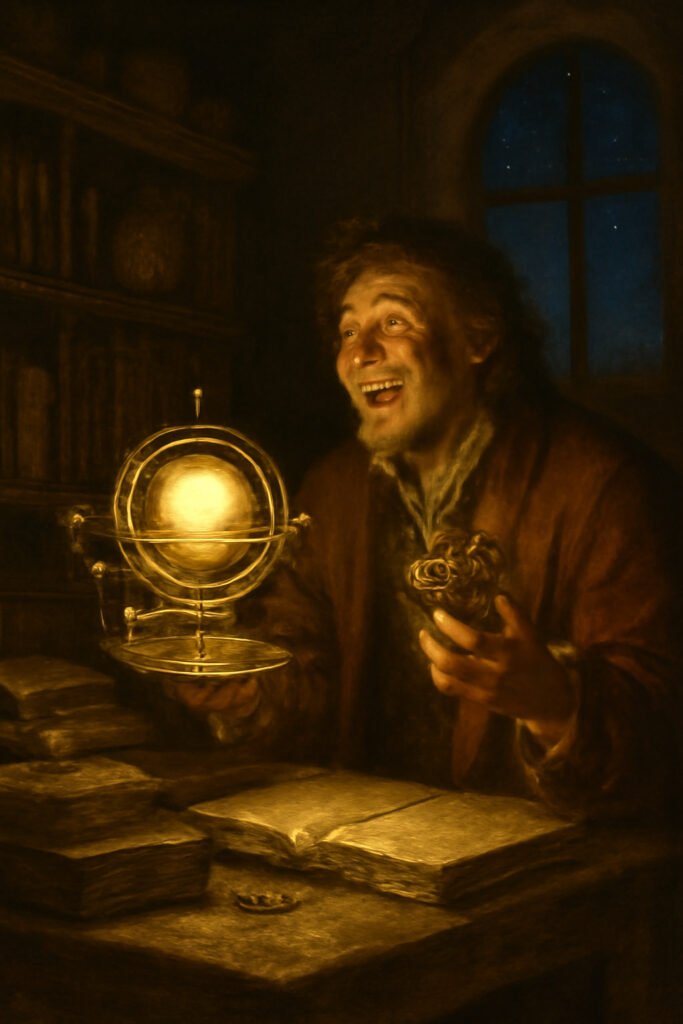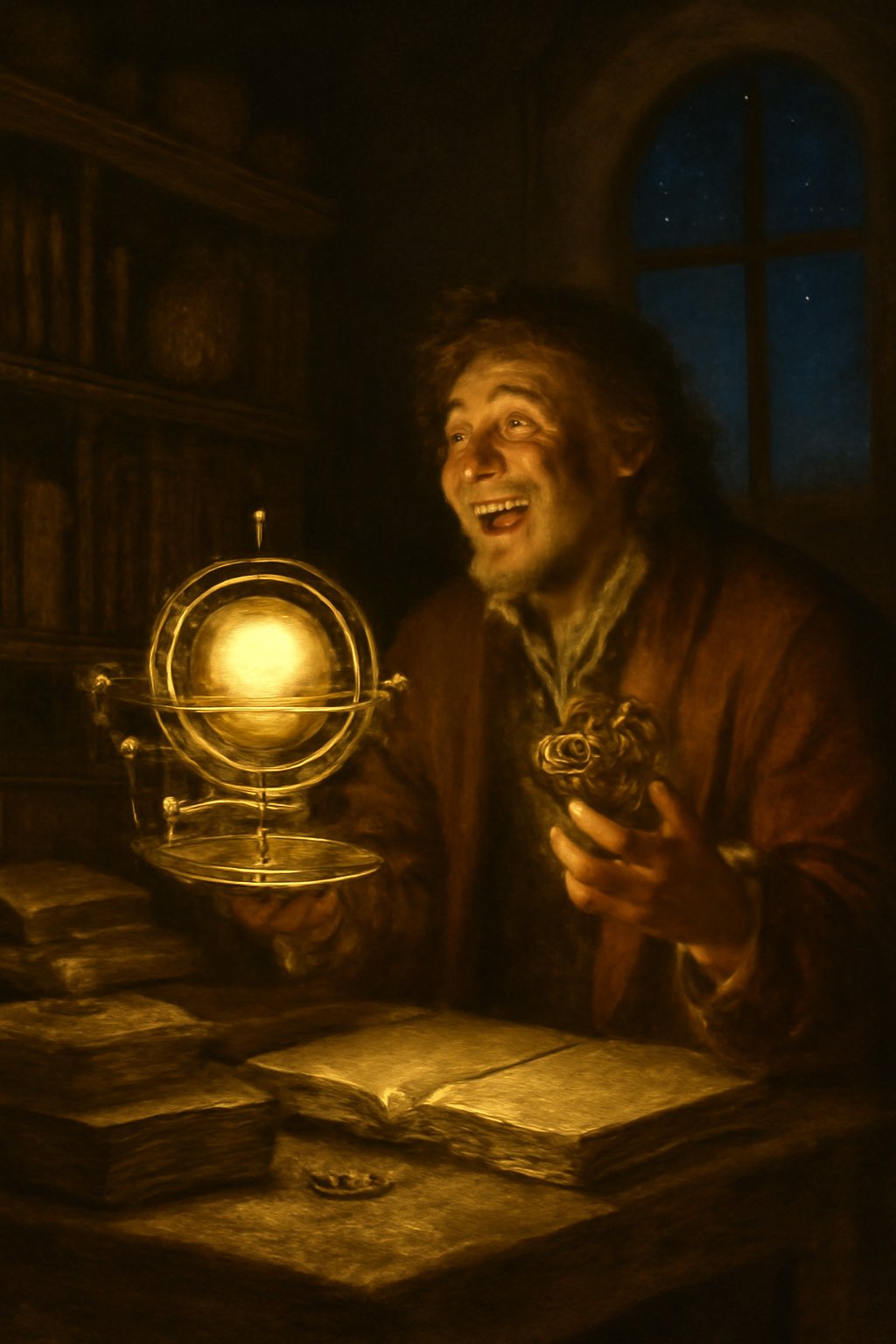In our modern culture, we often admire people with exceptional talent, those individuals who seem to stand out for their unique brilliance. These “geniuses” are often imagined working alone, isolated from the collaboration of others, creating something great on their own. But, if we stop and think about it, is it really true that the brightest talent should exist in solitude? Or is the loneliness of these individuals merely an illusion, a consequence of how we understand success?
The figure of the solitary genius has been celebrated throughout history, from ancient philosophers to Renaissance artists and scientists. Thinkers like Plato, for example, spoke of a purer knowledge, accessible only to the brightest minds. For him, the philosopher who reached the truth was almost a separate being, able to understand higher ideas that others could not.
Over time, figures like Leonardo da Vinci became the epitome of the “Renaissance man,” someone who mastered various disciplines alone, from painting to engineering. Da Vinci is an excellent example of how exceptional talent can emerge outside of social interaction, yet his genius was also fed by his environment, his collaborators, and the knowledge of the time. It’s easy to think of these geniuses as solitary beings, but the truth is more complex: the solitude of talent is often just a part of the creative process, not its entirety.
While we praise the independence of brilliant talent, it’s important to ask what this solitude really entails. Jean-Paul Sartre, the existentialist philosopher, discussed how, despite our search for authenticity and autonomy, we cannot escape the need for others. Sartre tells us that an individual’s existence is not solely defined by personal achievements, but by their interaction with others.
In this sense, solitary geniuses often face an existential paradox. While their talents shine brightly, social disconnection and lack of emotional support can leave them feeling incomplete. Loneliness is not always just a creative condition; it can also be a psychological burden. Even those with the most exceptional talents can end up feeling isolated, misunderstood, or even empty.The reality is that talent doesn’t always develop best in solitude. Throughout history, many of humanity’s most transformative ideas have been born out of collaboration, from the exchange of ideas between different minds. Albert Einstein, for example, didn’t create the theory of relativity on his own; he developed it in a shared intellectual context, interacting and debating with scientists like Niels Bohr and Max Planck.
Philosophers like John Dewey argued that learning and creativity are deeply social processes. Dewey believed that knowledge is not only constructed individually but also through communication and exchange with others. This perspective suggests that the true potential of brilliant talent is maximized in a collaborative environment, not isolation.
An individual’s talent should not be seen as an isolated resource, but as a spark that can ignite many others when combined with the ideas and energy of others. Teamwork doesn’t diminish personal greatness; it amplifies it, allowing each individual’s talent to multiply and transform.Many well-known geniuses have suffered because of their isolation, not just physically but emotionally. Think of the life of Vincent van Gogh, a painter whose work revolutionized art, but who spent much of his life battling depression and isolation. Van Gogh is a clear example of how a lack of social connection can affect not only an individual’s emotional well-being but also their creativity.
The philosopher Martin Heidegger reminds us in Being and Time that, although we seek autonomy, human beings are inherently social. The individual cannot escape their need for others. Therefore, brilliant talent, while impressive, can lose its energy and direction if it lacks interaction with others to share, challenge, and refine those ideas. It’s crucial to recognize that talent is not an isolated trait. We all have abilities and potential, but it’s only through interaction with others that we can fully develop that talent. As the philosopher Emmanuel Levinas says, our being is defined through our relationship with others. It is in interaction and collaboration where we truly find our purpose and develop our deepest potential.When talents come together in a community, they nourish and enrich each other. Genius is not isolated but forged through a social environment that allows it to grow and transform. So, far from the idea of the “solitary genius,” we can see that true greatness comes from recognizing the interdependence of all, from working together, from sharing challenges, and from supporting each other.
In the end, brilliant talent doesn’t have to mean solitude. The balance between individual expression and collaboration is the key to success. History teaches us that while some of the greatest breakthroughs came from exceptional minds, these minds often flourished thanks to the community, the exchange of ideas, and the support of others.Instead of idolizing the solitude of talent, we should learn to value it not only for what it produces alone, but for what it can achieve when shared, challenged, and complemented by others’ skills. Perhaps then we will discover that true genius doesn’t reside in loneliness, but in the community. In the end, true talent isn’t just the shine of a solitary star; it’s the gleam of a constellation that, although made up of many lights, becomes something much more meaningful and beautiful when united.



Deja un comentario